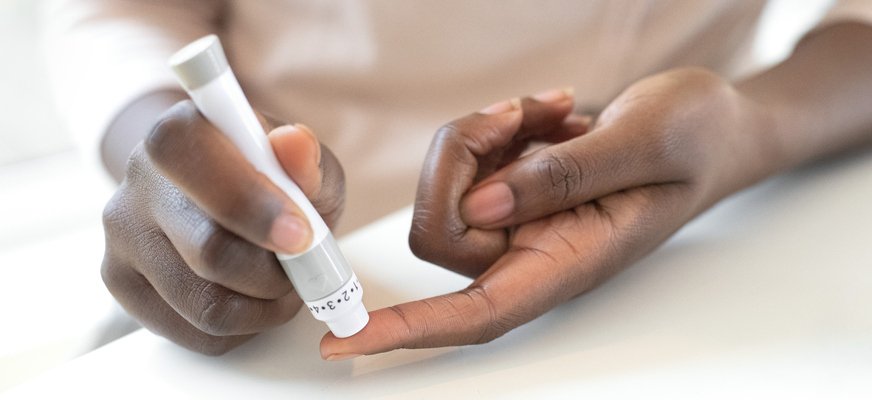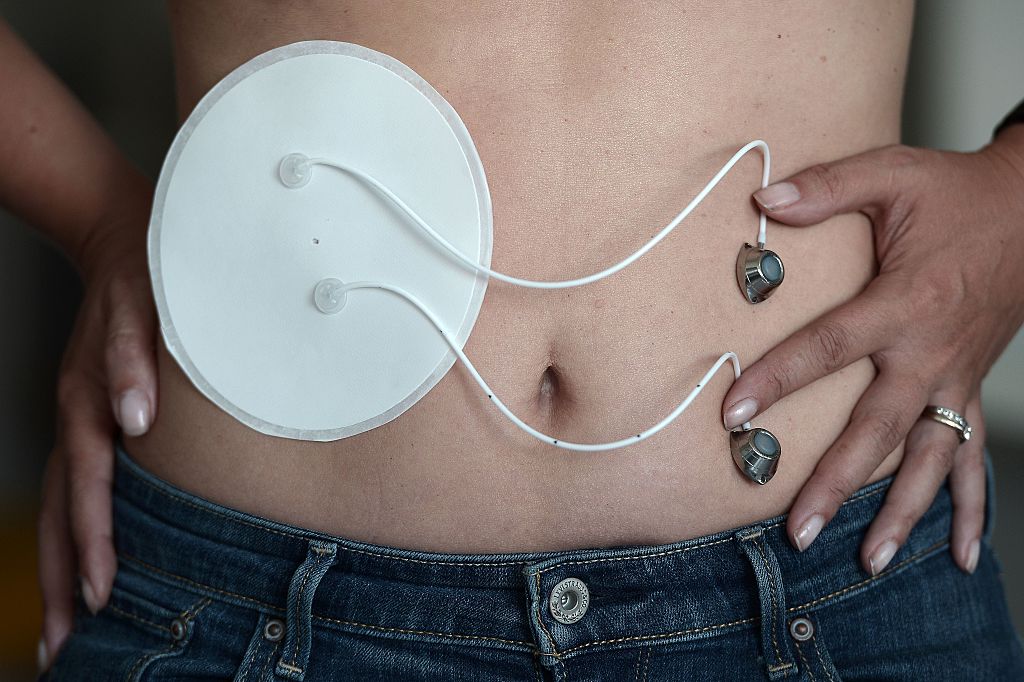
Source: SCIENCE PHOTO LIBRARY / Getty
The CDC reports that one in ten Americans have diabetes. The scarier fact is this: one in three Americans have pre-diabetes. That accounts for about 88 million Americans. The U.S. Department of Health and Human Services Office of Minority Health reports that Black individuals are over twice as likely to be diagnosed with diabetes as white individuals, and over twice as likely to undergo lower limb amputations due to diabetic complications. Most people with pre-diabetes don’t know they have it. World Population Review reports that the United States has the third highest number of diabetes cases in the world. That’s not a statistic any country wants to rank top three in. Diabetes increases the risk of many other health conditions, including fatal ones such as heart attack and stroke. In many cases, diabetes is preventable. That’s one reason National Diabetes Awareness Month is so important. There might be a lot of things the human population has no control over, but diabetes isn’t one of them.
Many people don’t take the time to learn anything about diabetes until having already been diagnosed. Unfortunately, diabetes is not curable so only getting the facts after you have it can only get you so far. You can treat the symptoms, but once a diabetic, a person will always be a diabetic. Today, so many other topics take priority in a doctor’s visit like the COVID-19 vaccine or sexual health. Diabetes conversations can be pushed to the back burner. However, these are things your doctor wishes you knew about diabetes.

Source: SDI Productions / Getty
You Can Be Thin And Diabetic
Many people associate diabetes with excess weight and even obesity. There can also be the presumption that, so long as you lead a healthy lifestyle, eat right, exercise and maintain a normal weight, you can’t be a diabetic. Unfortunately, someone can do all of the right things and still get diabetes. If you are predisposed to type 2 diabetes because of genetics, it is important to get tested for prediabetes, talk to your doctor about your family history and keep an eye on any developing symptoms. Do not assume that being of a healthy weight means you are not at risk for diabetes.

Source: Westend61 / Getty
Genetics Aren’t Everything
While having diabetes run in your family does put you at a higher risk for getting it, it doesn’t mean you will get it. The CDC reports that you can prevent type 2 diabetes. The important thing is monitoring for prediabetes, which is characterized by blood sugar that is higher than normal but not yet high enough to develop into diabetes. Too many patients submit themselves to the idea that if their family has diabetes, they are destined to. However, by leading a healthy lifestyle, getting regular checkups, screening for prediabetes and taking steps to reverse it, you can avoid or at least delay type 2 diabetes.

Source: Marco VDM / Getty
Even Children Can Go Blind From Diabetes
You might know that diabetes can lead to blindness but you might have thought that was only a risk for adults or for those who live with unmanaged diabetes for many years. The unfortunate reality is that even children can go blind due to diabetes. High blood sugar – particularly that which coincides with high cholesterol and high blood pressure – can cause blindness in children after only a handful of years. The National Eye Institute reports that there are no early symptoms. If a child has diabetes, it is important to get regular eye exams and manage their diabetes to prevent blindness.

Source: FatCamera / Getty
Many Pre-Diabetics Are In The Dark
As mentioned earlier, nearly one third of Americans have pre-diabetes, but many don’t even know that they have it. One in three people you pass on the street could be walking around with this condition. You could be one of them. There are no early signs of pre-diabetes, meaning there are not symptoms that you the patient can look out for. That is why it is critical – especially if diabetes runs in your family – to keep up with routine health checkups. Through blood tests and other exams your doctor can help you identify pre-diabetes. And if pre-diabetes is found, diabetes can be prevented.

Source: Tashi-Delek / Getty
Prevention Doesn’t Have To Be Extreme
Many individuals fear being scanned for pre-diabetes because they do not believe they will be willing or able to do what it takes to reverse it. However, the lifestyle changes required to reverse pre-diabetes are not extreme. In fact, the healthy lifestyle of a pre-diabetic or diabetic individual doesn’t look much different than that of a person who does not have diabetes. Exercising regularly and avoiding refined sugars are two of the greatest steps one can take to reverse pre-diabetes. In some cases, a doctor might recommend medication but in many cases the situation can be reversed without the use of medication.

Source: FatCamera / Getty
The Circulation-Exercise Dilemma
As the National Library of Medicine explains, prolonged unmanaged diabetes can cause circulation problems. This can quickly compound the problem of diabetes. Exercising regularly is very important to managing diabetes, but when circulation problems occur, exercise can be uncomfortable and even painful, deterring those who need it most from doing it. It is important to have your doctor examine you for blood flow issues early once you’ve been diagnosed with diabetes. If circulation problems do occur, speak to a doctor about medication or medical accessories that can address these so you can still exercise.

Source: FREDERICK FLORIN / Getty
There Have Been Great Medical Advancements
The idea of injecting oneself with insulin every day to manage diabetes can be intimidating for many. However, administering insulin is critical to managing diabetes because over time, the pancreas becomes damaged and cannot create adequate insulin on its own. Luckily, the needles and equipment used for injections have become fine-tuned to be more comfortable for patients. There are also new options like insulin pumps that remain attached to the user, minimizing the need for injections. ScienceDaily reports the medical community is also developing an artificial pancreas for diabetic patients that would eliminate the need for external administration of insulin.









